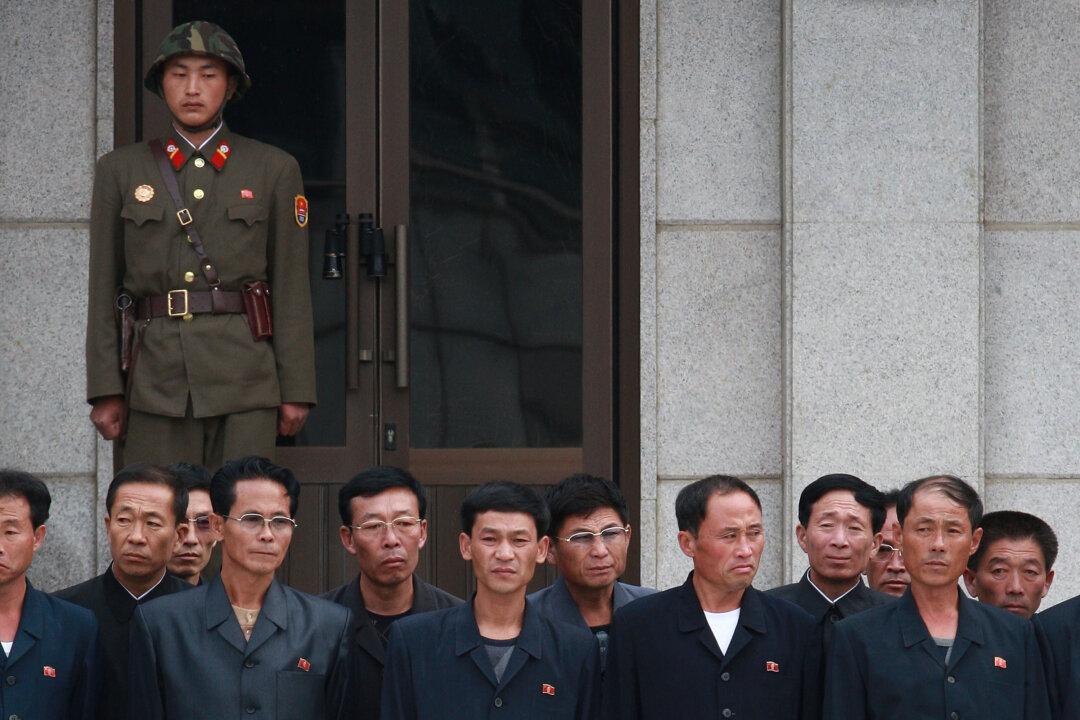As the health of North Korean leader Kim Jong-il continues to degenerate, it is expected that his youngest son, the little-known Kim Jong-un, will take control of the regime.
North Korea released the first picture of Jong-un on Sept. 30 through its state-run media just after it held a Worker’s Party congress—the first of its kind in 44 years. Just prior to the meeting, the 27-year-old Kim Jong-un was promoted to a four-star general . The move is viewed as a precursor to his eventual leadership of the Pyongyang regime.
“I would suppose this is perhaps the ultimate reality show unfolding in North Korea, and we are simply watching this very closely,” said Department of State spokesman Philip J. Crowley during a Sept. 28 daily press briefing.

A South Korean man watches a TV screen on Sept. 30 at a railway station in Seoul showing a KCNA group photo taken in Pyongyang. A red ring highlights the man believed to be Kim Jong-un, the youngest son of North Korean leader Kim Jong-il. Jung Yeon-je/AFP/Getty Images





